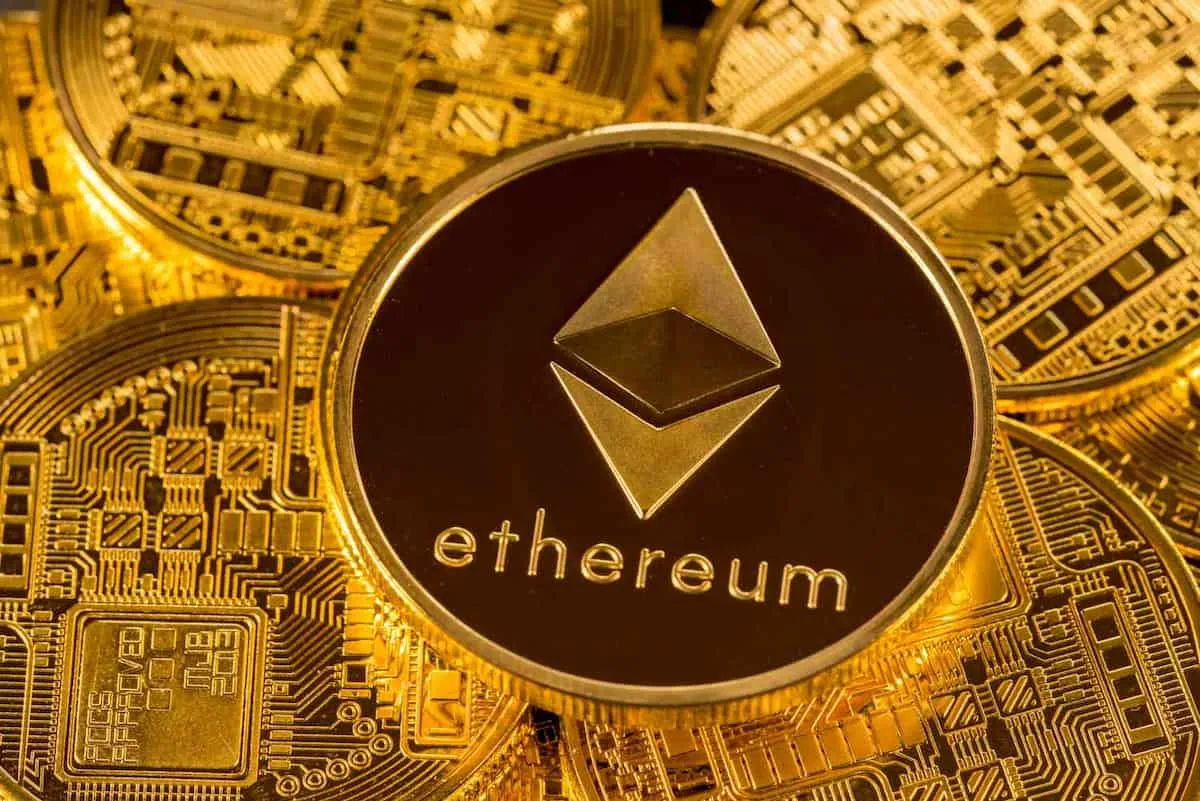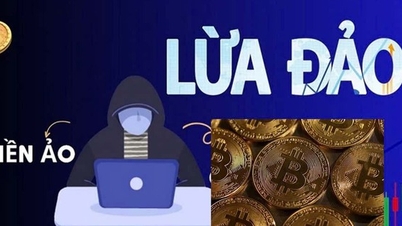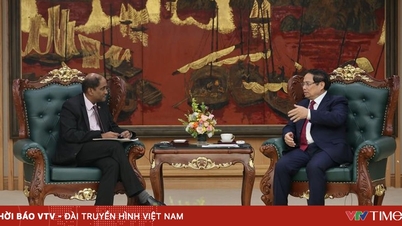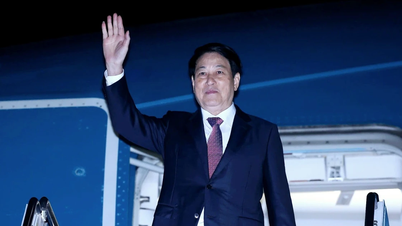
Major cryptocurrencies like Bitcoin or Ethereum are still subject to the same harsh supply-demand rules - Photo: iStock
Major cryptocurrencies like Bitcoin and Ethereum are still subject to the same harsh laws of supply and demand. Their value is not based on real assets but entirely on trust.
When global politics "melts" the cryptocurrency world
On October 10, 2025, the global cryptocurrency market witnessed a historic earthquake. Just a brief statement by US President Donald Trump about imposing a 100% tax on all imported goods from China caused tens of billions of dollars in cryptocurrency capitalization to "evaporate" within 24 hours. This shock caused exchanges to stagger, once again exposing the extreme fragility of the market once hailed as "the asset of the future".
According to international news agencies, the total value of the cryptocurrency market has lost more than 150 billion USD in just one day. Bitcoin - the world's largest cryptocurrency - plummeted from the price range of 122,000 USD to about 105,000 USD, while Ethereum also dropped more than 10%. Other altcoins such as Solana, Avalanche or Dogecoin simultaneously decreased from 12% to 25%. Nearly 1.6 million trading positions were liquidated, with a total value of more than 19 billion USD wiped out.
Notably, this crash did not originate from the crypto market itself, but from a global political and economic event. This move raised concerns about a new trade war, causing investors to flee risky assets. Cryptocurrencies, which are highly speculative, became the first victim of the rapidly spreading fear.
According to the Economic Times, financial experts say this event exposes the fact that the cryptocurrency market is still deeply dependent on global capital flow psychology. In times of instability, investors always prioritize gold and bonds - traditional safe haven assets - instead of Bitcoin. The sharp drop in crypto prices shows that they have not yet reached the status of "defensive assets" as many people mistakenly believe.

(Photo: Getty Images)
Another reason for the devastating crash was the excessive use of financial leverage. As Bitcoin prices fell, automated liquidation systems on exchanges were triggered, leading to a domino effect. Exchanges like Binance and Bybit even had to suspend derivatives trading due to liquidity overload. This highlighted the lack of safety mechanisms like “circuit breakers” in the crypto space, which makes it much more vulnerable to a chain reaction than traditional markets.
The crash also exposed the “herd mentality” typical of cryptocurrency investors. News of tariffs spread rapidly on social media, triggering a mass emotional reaction. Millions of retail investors simultaneously sold off without analyzing the real impact of the policy. A tariff policy unrelated to blockchain was enough to send hundreds of coins into free fall. This proves that when confidence is shaken and demand drops, the market immediately reacts with panic. Altcoins are even more fragile, as most have no clear practical applications. After each crisis, hundreds of tokens disappear forever - a testament to the short-term speculative nature of this field.
However, some experts believe that the crash on October 10 may be a "necessary bitter medicine" for the market to self-cleanse. Projects that lack transparency and rely on speculative cash flow will be eliminated, making way for projects with real value. Although painful, this may be an inevitable step to help the cryptocurrency market mature, moving towards long-term sustainability.
Expensive lesson for the global cryptocurrency market
After these "painful" experiences, the financial world may be forced to reconsider the long-standing illusion that cryptocurrencies are "new safe haven assets", independent of the traditional financial system. In fact, when instability broke out, Bitcoin did not increase like gold but plummeted along with stocks. This confirms that cryptocurrencies are still considered risky assets, not safe havens.
For policymakers, the shock has made them even more aware of the importance of closely monitoring crypto activities. If a market can be so volatile that it can have a ripple effect on stocks, commodities, and even international capital flows, then the development of a legal framework cannot be delayed. However, the challenge is to balance risk management with encouraging technological innovation.
Blockchain technology - the foundation of cryptocurrencies - is still considered to have great potential in digital transformation, cross-border payments and asset management. But for that technology to develop its value, the market must escape the short-term speculative spiral. Developers and investors need to focus on practical applications instead of just chasing coin prices. Only then can cryptocurrencies step out of the "illusion zone".

(Photo: Getty Images)
For investors who remain, the biggest lesson is risk awareness. The cryptocurrency market can bring huge profits, but it also has the potential to lose everything in a matter of hours. Leverage management, portfolio diversification and investment discipline are vital. Blind faith in “financial freedom” without understanding the nature of risk will only lead to heavy losses.
From a broader perspective, the crash is a reminder that there is no such thing as apolitical assets in the modern world. Despite being built on decentralized technology, cryptocurrencies are still subject to human factors – trust, fear, power struggles and economic policy. When trust is shaken, any technological construct becomes fragile.
The cryptocurrency market still has a future, but the road ahead is not paved with roses. It must prove its ability to withstand macro shocks, instead of reacting to extremes like it is now. Otherwise, just a tariff announcement or political tension is enough to "evaporate" tens of billions of dollars, as the lesson of October 10th.
A single policy statement from the White House is enough to wipe out tens of billions of dollars in value - raising questions about the stability of a cryptocurrency market that is promoted as "non-governmental, apolitical, and non-cyclical." When a tweet, a speech, or a diplomatic meeting can shake the system, the concept of "financial independence" in the cryptocurrency world becomes more ambiguous than ever.
Source: https://vtv.vn/khi-ao-vong-tien-so-tan-vo-truoc-con-song-chinh-tri-100251031140359767.htm




![[Photo] Prime Minister Pham Minh Chinh chairs the second meeting of the Steering Committee on private economic development.](https://vphoto.vietnam.vn/thumb/1200x675/vietnam/resource/IMAGE/2025/11/01/1762006716873_dsc-9145-jpg.webp)








































































































Comment (0)